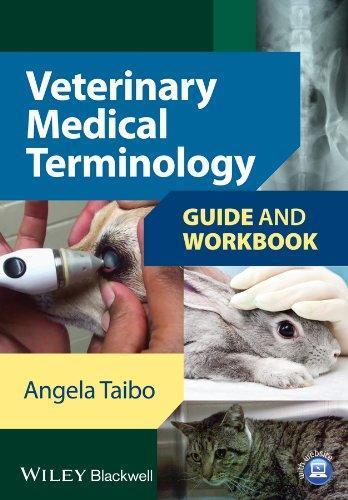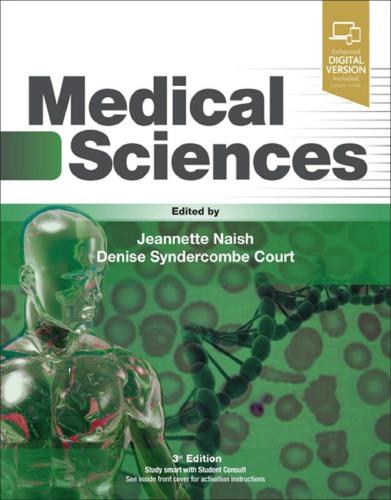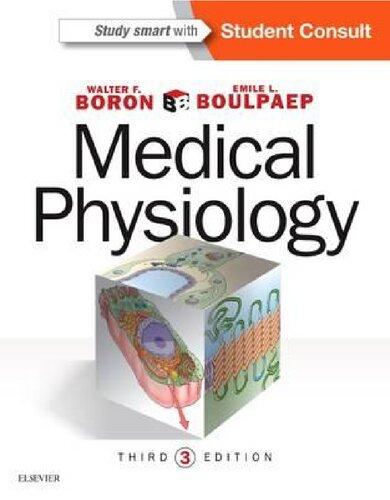https://ebookmass.com/product/medical-andveterinary-entomology-3rd-edition/
More products digital (pdf, epub, mobi) instant download maybe you interests ...
Medical and Veterinary Entomology 3rd Edition, (Ebook PDF)
https://ebookmass.com/product/medical-and-veterinaryentomology-3rd-edition-ebook-pdf/
Veterinary Medical Terminology: Guide and Workbook 1st Edition – Ebook PDF Version
https://ebookmass.com/product/veterinary-medical-terminologyguide-and-workbook-1st-edition-ebook-pdf-version/
Introduction to Veterinary Science 3rd Edition, (Ebook PDF)
https://ebookmass.com/product/introduction-to-veterinaryscience-3rd-edition-ebook-pdf/
Color Atlas of Veterinary Histology 3rd Edition, (Ebook PDF)
https://ebookmass.com/product/color-atlas-of-veterinaryhistology-3rd-edition-ebook-pdf/
Entomology and Pest Management 6th Edition – Ebook PDF Version
https://ebookmass.com/product/entomology-and-pest-management-6thedition-ebook-pdf-version/
Essential Entomology 2nd Edition George C. Mcgavin
https://ebookmass.com/product/essential-entomology-2nd-editiongeorge-c-mcgavin/
Medical Sciences 3rd Edition Edition Jeannette Naish
https://ebookmass.com/product/medical-sciences-3rd-editionedition-jeannette-naish/
Veterinary Dentistry: A Team Approach 3rd Edition –Ebook PDF Version
https://ebookmass.com/product/veterinary-dentistry-a-teamapproach-3rd-edition-ebook-pdf-version/
Medical Physiology 3rd Edition Walter F. Boron
https://ebookmass.com/product/medical-physiology-3rd-editionwalter-f-boron/
Another random document with no related content on Scribd:
min, too, mark ye!”) and two groups of Chinamen, also with sledges and with wrenches. And behind these extended, in parallel lines two deep, still more Chinamen—the ballasters with spades and picks.
A host of other Chinamen were gathered, chattering and laughing, to watch the work begin.
Now the U. P. men had a good chance to size up the C. P. track-crew and grade-builders—mainly those “haythen Chinese” who lived on tea, rice and pork (and rats, as Pat asserted); who fed no “roaring” towns, who did not get drunk, who gave no trouble to the bosses, and who asked only their dollar-a-day, and tended strictly to business; but who had been buried by snow in the Sierras, had worked in the fire-light on the soda-whitened Nevada desert, and now were arrayed to “show the Melicans.”
The track boss was white—Hi Minkler; Mr. H. H. Minkler, that is. He was passing to and fro, with sly words to keep the crews on edge. The man who met the U. P. officials and ushered them on to Governor Stanford and the other Central officials was Mr. James Campbell, superintendent of the C. P. Salt Lake Division. Mr. Strobridge, the C. P. construction superintendent, shook hands with the U. P. superintendent, Mr. Reed; and Mr. Crocker, the C. P. chief of construction, who ranked the same as General Casement, bustled anxiously here and there, on last inspections.
“Gee! They’d better begin,” spoke George.
“Longer they wait, the better for us,” proposed Terry.
“Don’t you want ’em to win out?”
“I dunno. Why yes, sure! If they can do it, let ’em. I guess they deserve it, and ’twon’t harm anybody. The U. P. is through. We beat to Promontory.”
Mr. Strobridge had been looking at his watch. He snapped it shut, instantly caught Track Boss Minkler’s eyes—“Go ahead!” he barked. “Lay to it!” roared Boss Minkler.
The air rocked to a sudden peal of cheers; but before the first note had issued, four rails at once were being laid; the nearest two rails on either side of the rail-car had been seized, each, by two men with tongs or nippers, carried forward at a run, and plunked down upon the ties as a starter!
Right away, without waiting for spikes or bolts, a crew of other men had put their shoulders to the little car and rolled it onward to the end of the second pair of rails; the first spikers and bolters jumped to set a couple of spikes, clap on the fish-plate fasteners, and thrust a bolt or so through, while the gaugers measured and two crow-bar men stood ready to line up.
The Chinese spikers and bolt-screwers were on their heels, to drive the spikes and tighten the fish-plate bolts—but before this another pair of rails were down and the rail-car had advanced again!
In their parallel double lines the Chinese ballasters were coming, like a well-drilled company. They numbered fifty. The inner lines carried spades, the outer lines carried picks. The spades scraped and shoveled and tamped, between the ties; the picks rose and fell, piling up the dirt along the ends; thus the ties were settled and the track leveled, like lightning.
“Keep back, everybody!” shouted Superintendent Strobridge, as the people crowded and craned.
“In the name o’ the saints, wad yez look at ’em travel!” That was the exclamation of Paddy Miles, who had pressed afoot into the front rank of spectators, and was staring agape.
General Casement had his watch out.
“Five lengths of rail to the minute!” he announced.
“Gee! One hundred and forty feet!” gasped George. “How many minutes to the mile, then?”
“Not much over thirty. They’re liable to do two miles an hour, if they keep up,” Terry calculated.
The rail-truck was partly unloaded; at a bark from Boss Minkler a lot of Chinamen dumped the remaining rails at end o’ track—and back down track rumbled the car, its crew at a dead run, for the near supply while the rail-layers were working.
It had not stopped before it was being reloaded at top pace; and back it charged, for end o’ track again. The Chinamen in its path barely sprang aside; then bent once more to their jobs.
The track had been lengthened by half a mile! “Toot, toot!” and “Toot, toot!” signaled the two engines at rear. Here they came, too, with their fresh supplies, halted upon the newly laid track, dumped more ammunition, and backed out, to clear.
The work never slackened for the trotting rail-layers to ease their arms. The spikers and bolters pushed them hard—the Chinamen rarely uttered a word, as they shuffled forward, machine-like. Every man on the job was dripping with sweat. The car crew—Chinamen, they—strained and panted as they shoved at the heavy car; suddenly at a word they fell out and another crew dived into their places.
Along the squads from rear to front and back to rear hurried the water-carriers, with dippers and splashing buckets, ladling right and left.
To keep up with the rails the crowd had to be constantly on the move, themselves; end o’ track was always getting away from them. It all was so exciting that time flew, like the track.
“Major Hurd says eight-thirty—one hour,” uttered George. “And now look at where they started, at those last tents. Back a mile and a half, or more!”
“Don’t believe they can keep it up.”
“They’ve got 4,000 men to draw on; mostly Chinks.”
“Only so many can work at once. It takes a lot of practice to lay rails and drive spikes just right.”
“If they do keep it up, they’ll have time to spare. Maybe they’ll go straight on to the U. P. track, fourteen miles!”
The C. P. men were so well drilled that they worked without signals. “Plunk, plink, plink, plank,” sounded the rails, dropped as regularly as a clock ticks—a pair of rails every ten seconds! “Whang, whang, whang, whang whangity-whang, whang, whang!” clanged the sledges, with one continuous rapid-fire. The spades rang and the picks thudded, and the Chinamen grunted. Up to end o’ track, end o’ track, end o’ track again, rolled the iron-truck—every minute, as seemed, boomed back, shoved by its sweating crew, for another supply, and charged in through the midst of the pig-tailed, grunting ballasters, who flowed together again in its wake. The iron-train edged onward, ready.
Track Boss Minkler held the fore, darting from crew to crew, inspecting, scolding, praising, calling the attention of the gang bosses to now this, now that, and seeing that the rails did not lack. He was sweaty and grimy—worked as hard as any other man. Pat Miles could have done no more.
Chief Superintendent Crocker rode restlessly hither-thither, along the whole line from train to end o’ track appeared to see nothing but the job, and he saw everything there.
“Lay to it, boys. Workee allee time chop-chop, John. No stopee till topside ten miles. Sabee?”
And the Chinamen answered, with shrill little yaps:
“Hi-yah, Meestee Clocky. Workee chop-chop, you bet.”
“Golly! At the third mile-stake, already,” said George, while the procession moved on. “’Tisn’t more than nine o’clock, either!”
“Shucks!” Terry blurted. “These C. P. fellows could build a whole track, grade and all, ten miles in a day, at the rate they’re going. Wonder if they’ll quit for noon.”
“They’ve got the dead-wood on Paddy Miles, sure,” George chuckled. “Look at him, with his mouth open and his pipe out!”
Higher rose the hot sun; still the rails clanked, and the sledges whanged, and the iron-truck rumbled, and the picks thudded, and the spades scraped, and ever and anon the two trains tooted their “coming up” signal. The air fairly quivered with action.
The sight was fascinating: the rail-layers, four on a side, always on the run; the gaugers, clapping their gauges to each pair of rails as soon as dropped; the rail-truck, with its load projecting fore and aft, and its pusher crew straining with bowed backs; the spike and bolt placers, who never straightened but scurried, head down, on the heels of the pushers; the Chinese sledge men and wrench men, pressing closely; the two double lines of ballasters, as busy and as orderly as marching ants; Boss Minkler and Big Boss Crocker prancing and urging; the iron-train dumping ahead of time and pulling out for more; and all the grassy, sagy slope, under a blue sky and fringed by desert mountains, thronged with the intent spectators wearing every sort of garb, from Governor Stanford’s broad-cloth and General Dodge’s corduroys, down to the U. P. redflannel shirts and the C. P. cotton blouses.
“Great Scott! More than five miles, and they aren’t going to stop for noon,” Terry gasped.
They didn’t. They went right along, for another hour—they went along, until on a sudden Mr. Crocker reined his horse at end o’ track, raised his hand, dropped it sharply, as if driving a lance—
“That’ll do. Knock off.”
The men straightened, and stared about dazed, while they wiped their brows.
“The six-mile stake, and the new station of Victory,” shouted Mr. Crocker, to the crowd around. “One thirty o’clock. Six miles of track laid in six hours. We’ll take an hour’s rest.”
“B’ jabers, yez’ve earned it,” Pat bawled, just as a great cheer answered the announcement. “Take two hours; take thray.”
Mr. Crocker again raised his hand, for silence.
“There’ll be dinner for all, right here. Superintendent Campbell is bringing up the boarding-train.”
The exhausted track-gang tossed down their tools, and staggered aside, to drink, and wash, and throw themselves down, also, for a breather until the cooks beat the dinner gongs.
The dinner was served upon long tables set up in a jiffy in the open air—but the Chinamen squatted around their big kettles of rice and stew and tea. The U. P. officials dined with President Stanford and the other C. P. officials at a separate mess, near the headquarters private car.
“What are you going to do? See it through?” asked George, of Terry, while they cleaned their platters.
“I dunno. Guess there’s no doubt about those ten miles.”
“Well, I should say not! Only four miles yet, and five hours to do them in. But let’s stick around.”
“All right. We’ll stay as long as General Dodge and the two Casements stay. Down on the plains we used to think three miles was a big day’s work; but, gee, these Central gangs can double that in half a day!”
“So could the U. P. gangs, if they wanted to show off,” George asserted. “Look what we did on the Red Desert, and in the mountains last winter. We could start in and lay twelve miles tomorrow, if we had the chance.”
At two-thirty o’clock prompt the whistle of the iron-train tooted one shrill blast. The C. P. track-crews had been stationed for five minutes, poised and waiting. The sweat had dried on them—they were a bit stiff and tired; but they were game for the finish. Like a machine when a lever has been pulled, at the sound of the whistle they all broke into motion again.
Some of the spectators left. It seemed to be a certainty that the ten miles would be won, although of course there might be a hitch. Four miles to be added to six, in the shank of a day, was a chore.
On marched end o’ track, carried by these C. P. cracks, and escorted by the expectant crowd; to the seven-mile stake—and the eight-mile stake—but backs and arms, and eyes also, were getting tired.
The sun was sinking toward the desert ranges in the west; end o’ track was moving forward more slowly.
Terry measured the distance between sun and mountains.
“Dunno whether they’ll do it or not. They’re pretty well petered out. Those track-layers are plumb tuckered. Reckon their hands and feet, both, are blistered.”
“The spikers’ tongues are sure hanging out,” added George. “’Twon’t be fair for ’em to work by night. They’ve got to finish inside of a day.”
The U. P. officials were still here; so was Pat, and Big Mike the grading boss, and quite a bunch of other spectators who, like Terry and George, had resolved to “stick it out.”
The nine-mile post! The sun now was low over the western edge of Promontory Point.
“One more stake, boys,” hoarsely urged Boss Minkler. “Plenty of time, if you just keep at it.”
“No stopee, John. Keep chop-chop. Almost topside,” shouted Mr. Crocker.
“Hi-yah, Meesty Clocky. Keep chop-chop, make topside, you bet,” panted the Chinamen.
The sun of April 29 was touching the western ridge; the shadows of workers and spectators stretched long—the rail-layers’ shadows seemed to lead on, marking the way.
“What time is it?” Pat demanded.
“Close on seven o’clock.”
“B’ dad, an’ they’ll make it, then; for yon’s the ten-mile stake. Yis, an’ I hope they do, even if I have to pay the $10,000 myself.”
Rail by rail it was, with the sweaty forms staggering after, in the wake of the little rail-truck. Rail by rail—only a few more needed——
What! The ten-mile stake? Hooray! And seven o’clock precisely! Ten miles of track, laid in ten and one-half hours’ working time, or almost at the rate of a mile an hour! A world’s record, by the Central Pacific Railroad.
“Finish out the truck-load, boys,” bade Mr. Minkler. “Give the U. P. good measure.”
And they finished the truck-load.
“Ten miles and 200 feet extra, gentlemen,” Mr. Crocker announced. “Are you satisfied?”
“You win,” smiled General Dodge. The track-crews eased their weary back, and tried to smile, too; but they drooped as they leaned upon their tools. The panting railcarriers threw themselves flat, exhausted.
“That was a giant’s feat, gentlemen,” proclaimed Mr. Crocker. “I want to introduce to you these eight men who carried ten miles of rails in one day, without a pause except for nooning. Their names are Michael Shay, Patrick Joyce, Thomas Daily, Michael Kennedy, Fred McNamara, Edward Killeen, George Wyatt, and Michael Sullivan. They’ve moved bodily over a million and a half pounds of iron.”
The crowd cheered.
“An’ sivin of ’em are Irish, an’ the other ought to be,” shouted Pat. “So it’s all in the family, an’ we don’t begrudge yez the job. Faith,” he added, to his rival, Track Boss Minkler, “a trifle over 2,000,000 pounds o’ iron have your gangs handled this day. For hiven’s sake, send your min to bed, or my brain’ll burst wid lookin’ at ’em. B’ dad, an’ wance I thought we could skin yez at the track game. Mebbe we can—I’m not sayin’ we can’t, but we’re lucky to quit before-time.”
“It’s laid and well laid,” Division Superintendent Campbell was remarking, to General Casement. “And to prove the fact, I’ll engage
to run a locomotive over the entire distance in forty minutes.”
So he did, on the return to the C. P. camp; but only a few of the visitors remained, to witness. The sun had set, soon the darkness would gather, and the bulk of the crowd commenced to stream eastward, for Promontory, the U. P. camp, Blue Creek, and even beyond by wagon and train.
General Dodge and General Casement and Mr. Reed stayed, to be the guests of Governor Stanford at supper.
“What do you reckon Pat meant by his 2,000,000 pounds?” George queried, as he and Terry cantered on their way to camp. “All those figures sound like heap talk.”
“Let’s ask Major Hurd.”
They dropped back to Major Hurd, the U. P. assistant superintendent of construction.
“Crocker knows, and Pat made a shrewd guess,” said Major Hurd. “It’s quickly figured. I have the items right here.” And he consulted his pocket memorandum book. “The C. P. are using thirty-foot rails, weighing fifty-six pounds to the yard. In one mile there should be 352 rails, each weighing 560 pounds, and the total weight for ten miles sums 1,971,200 pounds, in rails alone. The ten miles calls for 55,000 spikes, 7,040 fish-plate fasteners, 14,080 bolts; and while they may not bring the total quite to the 2,100,000 pounds, we’ll call it that in round numbers. And every pound of the iron had to be handled—and handled several times.”
“Whew!” sighed George, as if the very thought made him tired. “Wonder when the next big show will be.”
“Which?” Terry asked. “Pat counting the ties with his nose? There are over 26,000 of them.”
“No. The joining of the tracks. The C. P. have only four miles to go.”
“The wedding of the rails, you mean?” prompted Major Hurd. “May 10 is the date suggested, I understand. That will give both roads
time to arrange for a program and for bringing in the people who’ll wish to come, from the East and West. General Dodge is talking the matter over with Governor Stanford now, so as to report to New York.”
“Thank you. We’ll stick around, then, I guess,” George asserted. “I’ll have to stick, anyway,” he added, to Terry, as they two rode ahead, “till the men are all paid off. And maybe so will you.”
“Haven’t been paid, myself, for a month,” laughed Terry. “But that doesn’t count. I’m going to see this thing through. The wedding of the rails is liable to be a regular humdinger of a celebration.”
RAILS
“HAVE ye seen the grand tie that them Californy people are givin’ toward the big doin’s tomorrow?”
Paddy Miles put the query to Terry, in the U. P. construction camp on the border of the Salt Lake near Blue Creek. The weather of the past few days had turned raw, blustery and rainy. Both the U. P. and the C. P. camps had been moved from the high windy plateau down to lower ground. Now they were out of sight of each other.
“No. What kind of a tie, Pat?”
“Red as rale mahogany, an’ polished like satin, an’ set wid a silver plate. ’Tis the last tie, to be laid under the inds o’ the last rails.”
“Where is it?”
“Over yon in the C. Pay. special car, on the sidin’ back o’ their ind o’ track. Yes, an’ ’twixt you an’ me (but ’tain’t to be repeated), there are two spikes o’ solid gold, wan of ’em topped wid a big nugget, an’ worth $400, come along wid it, an’ two silver spikes, from Nevady an’ Arizony. Minkler’s guardin’ the car, wid a squad o’ track men, but I dare say if you go over an’ tell him I sent you, he’ll let you have a peep.”
This was Sunday, May 9. The ceremony of laying the last rails had been up in the air, so to say. President Stanford’s special car bringing a party of C. P. officials and their guests, including the governor of Arizona and dignitaries of Nevada, had arrived on Promontory last Friday, the seventh, thinking that the ceremony was to occur on Saturday, the eighth.
But General Casement had met them at U. P. end o’ track with the Superintendent Reed special coach, to tell them that the U. P. guests
could not possibly get in from the East before the tenth. So he had taken them back to Ogden, on a sight-seeing tour of the mountain country.
However, San Francisco had began to celebrate, anyway. Omaha and Chicago and New York, Washington, Philadelphia, Boston and other eastern cities were making ready. They awaited only the word.
The Central had laid their four miles of track, lacking a trifle. Like the Union Pacific, they had stopped one pair of thirty-foot rails short of the meeting-place.
They had renamed their station of “Victory,” and changed it to Rozel. They had set up a sign-board at either end of their ten-mile stint, to announce to overland passengers: “Ten Miles of Track in One Day.”
Their eight rail-carriers—Mike Shay, Pat Joyce, Tom Daily, Mike Kennedy, Fred McNamara, Ed Killeen, George Wyatt and Mike Sullivan—who had toted all those ten miles of rails, without being spelled once, were still the heroes of the day.
Having nothing especial to busy him this Sunday afternoon, Terry straddled his horse and rode up to the summit, to see the wonderful tie and the precious spikes.
The summit of Promontory Point was pretty well deserted, today, except for the little collection of tents and shacks forming the “town” of Promontory. The Central people had started a short siding, but had quit, over Sunday. Down at the U. P. camp Pat was darkly hinting that this C. P. siding would never be finished, now.
“For they’ve gone to slape on the job; an’ b’ gorry when they wake up they’re like to see a U. Pay. sidin’ in place, an’ the U. Pay. ownin’ the switchin’ rights at the meetin’-place terminal. We lost Humboldt Wells, mebbe, but we’ll not lose Promontory Point if we can help it.”
Only the small gap of two rails’ length remained to be filled in before trains might pass over the new Pacific Railway between the Missouri River and the Pacific coast. A mere fifty-eight feet, beyond the telegraph pole that proudly floated a United States flag (hoisted
there by orders of General Dodge), broke the iron trail of 1,770 miles. The tracks could be connected up in a jiffy.
The Stanford special car, which was the private car of Mr. Charles Crocker, the C. P. contractor and construction boss, stood yonder upon the C. P. siding spur. It was gaily decorated; but all the steps on one side had been torn away in the trip out from Sacramento. A careless Chinaman, felling timber above the track, had landed a log upon the rails, and the Stanford special, of only engine and car, had just escaped a bad wreck.
The car had got through, though; and here it was, guarded by the C. P. track-layer boss, H. H. Minkler, and a squad of armed track men. Those gold spikes would be a great prize for some of the “floaters” in Promontory.
Terry being a friend, Mr. Minkler obligingly unlocked the car and ushered him inside. There was nobody here except a timid Chinaman cook. Everybody else was sight-seeing.
Mr. Minkler removed the canvas cover from the tie.
“What do you think o’ that?”
“It sure is a beauty.” So it was—red and polished like true mahogany, and set with a silver plate on the side. “Where does it go, Mr. Minkler?”
“Read the plate and you’ll see.”
Terry stooped and read.
THE LAST TIE
Laid in the Completion of the Pacific Railroad May 10, 1869
That was the top inscription on the plate, followed by the names of the officers and directors of the Central Pacific.
“Heft it.”
“Whew, but it’s heavy! Is it made of mahogany?”
“No. Californy laurel; and a good solid piece, too. Eight feet long, eight inches wide and six inches deep, it is.”
“Somebody’ll steal it out of the track.”
“Oh, it won’t be left there. It’s a show tie. Those holes already drilled in it are for the special spikes to set in. Mebbe you’d like to see them, too. All right. Take a squint. Those two gold ones are from Californy—one for Mr. Durant to drive at the U. P. end, and the big one with the nugget head for Governor Stanford to drive at the C. P. end. The solid silver spike is from Nevady; they say a hundred men each hit it one lick, in the forging. That other spike is from Arizony. It’s a mixture of gold, silver and iron. And I hear tell there’s a silver spike comin’ from Montany and another from Idyho.”
When Terry rode back for his own camp, he cast calculating eye at the telegraph pole, again, with the Flag floating. It stood at the U. P. end o’ track, like an outpost marking a triumphal march across continent. High over this high country above the great Salt Lake the Starry Flag streamed in the evening breeze, challenging the world of lake and desert to show any better sight.
The last rays of the setting sun struck it full, promising it a bright tomorrow, and Terry swung his hat at it.
“Now if George only gets here early enough——!” he planned. “Gee! Hope he does.”
That was of much importance, but was nothing to worry over. George had been kept in Ogden, mostly, with the pay-car. He’d be on hand, though. Nobody who knew George Stanton might doubt this.
“A fine day ahead of us,” Pat prophesied, at the camp, with jerk of his scarred thumb toward the gorgeous yellow sunset. “Sure, we’re goin’ to be blessed wid that—but b’ gorry we got to work all the night, to ’arn it, layin’ our side-track. Them’s the orders from Gin’ral Casement an’ Gin’ral Dodge, an’ they’re goin’ to boss the job themsilves whilst the C. Pay. slape. ’Twill be the U. Pay.’s terminal.”
The night was sharp and starry, and ice formed on the water buckets. The morning dawned as dear as a bell, and fanned by a strong, nipping breeze. Pat’s prophecy had come true.
Before daylight a few spectators had commenced to toil through, in the distance, by horse, wagon and buggy, from the ranches and towns eastward. The boarding-train was made up early, to take the men on from the construction camp. On the tender Terry arrived at the head of the procession.
The plateau was getting lively. A sprinkling of spectators by horse, wagon and buggy had come in from the west also. By all-night work the U. P. siding had been put in and completed. A squad of Pat’s men were tamping the ties, and tossing jokes at the C. P. men for having been outwitted. A squad of Chinamen from the Central camp were pottering along the C. P. roadbed. It all looked like business.
People continued to gather, and Terry fidgeted. About ten o’clock the C. P. construction-train, with the Stanford special as a trailer, puffed down, to halt at C. P. end o’ track, and wait. Engine and cars were fluttering with red, white and blue flags and bunting. The name of the weather-beaten locomotive was “Jupiter.”
Evidently President Stanford had been entertaining a large breakfast party, for almost all the C. P. officials piled out: the governor, and Vice-President C. P. Huntington, and Builder Crocker, and Construction Superintendent J. H. Strobridge, and Chief Engineer S. S. Montague, and Consulting Chief Engineer George E. Gray, and a bunch of others—three United States Pacific Railway commissioners and the governors of Nevada and Arizona, among them, people said.
There was one woman, Mrs. Strobridge, the Heroine of the C. P., they called her, because she had camped at the front, with her husband, all the way during the building. But the U. P. had two heroines, besides Virgie.
President Stanford and Vice-President Huntington attracted the most attention. They were fine-appearing men, in trousers and long coats of black broad-cloth, their shoes polished, everything about them
spick and span as if they had come to a reception. Ex-Governor Stanford had ruddy complexion and kind, handsome face. He had been California’s war governor. Vice-President Huntington was larger in frame; broad and heavy and imposing. His face reminded one of a lion’s. During all the years of the railroad building he had made his headquarters in New York, raising money for the company; but he had traveled back and forth, back and forth, by stage and railroad, nobody knew how many times. Both he and Governor Stanford were reported to be very rich.
They all trudged forward, to the space that had been kept open from their end o’ track to the flag telegraph pole. There was shaking of hands, and considerable eddying about. Terry viewed the crowd, and the telegraph pole, anxiously.
“Dog-gone, why don’t our trains come?” he complained, to himself. “Where’s that George?”
The U. P. boarding-train had backed out and entered upon the siding, to clear the track. Now a prolonged whistle sounded, from the east. Hurrah! Terry recognized it; no one of the end o’ track force on the U. P. line could mistake that whistle. Old Number 119, the veteran construction-train engine, of course! And here it came, hauling the first U. P. excursion-train decorated from stem to stern with the red, white and blue. He ran down track.
The train was loaded to the guards. Engineer Richards and Fireman Bill Sweeny were in the cab; George was hanging out from the cab steps, and Virgie was riding on the pilot!
George made a flying leap, and a rush for Terry.
“Did many C. P. folks get here first? Who are they all? We brought the whole U. P. gang in that scrumptious patent Pullman—VicePresident Durant, Colonel Seymour, Mr. Dillon and Mr. John Duff of the directors, the Casements and General Dodge and Mr. Reed and Major Hurd, and two silver spikes, and a heap of people from New York and Chicago and Boston and Omaha and I don’t know where else. Your mother and my mother, too. There’s another train right
behind us, fetching Ogden’s mayor, and a raft of other Mormons, from Salt Lake City, and soldiers and a band from Fort Douglas down there. Bet we have more people than the C. P. Is that their only train?”
“Come on!” Terry bade. “I’ve found a place for us, if we can make it before somebody else grabs it.”
“Where?”
“I’ll show you.”
Away they ran, Terry leading. They had to zigzag through among the carriages and wagons and horses and jostling spectators.
“We can get atop that telegraph pole, and see everything.”
“Which pole?” panted George.
“The one with the flag on it.”
“How’ll we do it?”
“Shin up and sit on the cross-arm. It’s right over the place.”
“Maybe they won’t let us.”
“Yes, they will. Everything’s free.”
“Aw, shucks!” George puffed, slackening. “Somebody else is there.”
So there was: a man had mounted to the cross-arm and was astride it.
“Shucks!” agreed Terry. “I’d been saving that for us.”
He, too, slackened, disappointed.
“We can take the next pole.”
“No; it’s too far off.” Then—“Come on!” urged Terry. “He’s getting down. I know—he’s a lineman, is all, tapping the wire.”
They ran again.
“He’s leaving a ladder. Hope it stays,” George gasped. “That’ll be nuts, if only nobody beats us.” And he exclaimed: “It’s all right! That’s Harry! That’s Harry Revere!”
They caught Harry at the foot of the pole.
“Hello! How’d you get here?”
Harry grinned.
“On that train.”
“I didn’t see you,” George accused.
“Didn’t say you did. But I said I was going to end at the front, and here I am. Reached Ogden yesterday, and they sent me on out. I’m the boss lightning-shooter, today.”
“What you going to do?”
“Send the news. Connect up my table yonder at the track with San Francisco and Omaha, and tell the United States what’s happening. Today’s the day when I own the whole system; everything’s to be kept open, waiting on Yours Truly.”
Off limped Harry, all business. Terry yelled after him.
“We’re going to climb your pole, then.”
“All right. You can borrow it, but don’t you monkey with my wires.”
The people around seemed to have no thought, yet, of seizing upon the pole. They were too engaged in staring about.
“Good eye,” George praised, as following Terry he scrambled up the ladder and squirmed the rest of the way to the cross-arm. “Say! This is shore great. Where’s the place for the last spike, now?”
“Square below. It’ll be solid gold. I saw it. Seven inches long, with a nugget for a head, and worth $400. It’s from California, for President Stanford to drive. And there’s another, not so big, for Vice-President Durant. I saw the last tie, too, and it’s a dandy all polished like mahogany, with a silver plate tacked to it and holes ready for the spikes. Arizona and Nevada and Idaho are giving silver spikes——”
“I know,” George interrupted. “I read the whole program in the Ogden paper. The governors are to make speeches, and so are the U. P. and C. P. folks; and the telegraph line’s connected up with Harry’s operator’s outfit so that bells will strike out East and on the Coast when the last spike’s driven. Chicago and New York and Boston and Washington and New Orleans and St. Louis and Philadelphia will all be notified at the same time by Omaha, and Sacramento and San Francisco will get it direct. And old 119, and old Jupiter of the C. P., will touch noses.”
“It’s a boss place to see from, anyhow,” observed Terry.
The C. P. head officials had gone down track, to the Pullman on the end of the U. P. special train. Presently the whole party, for both roads, issued from the Pullman, and came on. George chuckled.
“Talk about ‘last ties.’ That one Mr. Durant has on beats the C. P. tie all to pieces!”
“It’s the last thing in ties, all right,” answered Terry.
Vice-President Thomas C. Durant of the U. P. New York office was rigged in festival attire, with a black velvet coat and a necktie so gay that it fairly dazzled the eyes. General Dodge, Mr. Sidney Dillon, the Casements, Major Marshall Hurd, Superintendent Reed—they were there; and a heavy bushy-white-whiskered old gentleman in broadcloth suit, who was Mr. John Duff of Boston, a leading director and the father of young Mr. Duff; and several others.
The crowd cheered them. The sight below was a stirring one. The second U. P. train had arrived; from it were hastening another bevy of excursionists, and the soldiers and band from Fort Douglas at Salt Lake City. The track-layers and graders and surveyors of both roads were swarming upon the standing cars—they covered the tops of the coaches, and stood upon the running-boards of 119 and Jupiter. Yankees, Irishmen, Chinamen and even Indians and Mexicans jostled one another for position.
Several people had followed Terry’s and George’s example and climbed the ladder, but they could not reach the cross-arm. Virgie
had a good position, in the cab of 119. The two Heroines of the U. P. and the Heroine of the C. P. had met; they were given a front place of honor. The companies of the United States Infantry were drawn up, along the grade at the gap in the track.
“Comp’ny—rest!” the captains barked; and the blue-coat line, their hands in white gloves and every button shining, stood at ease, while the band played.
All the engines were tooting, also. There was another whistle, from the west. A second C. P. train was coming, decorated from pilot to rear coach. Its crowd thronged forward.
The sun was getting higher overhead. At a word from General Dodge, who seemed to be a sort of master of ceremonies, the infantry captains crisply ordered:
“Comp’ny—’tenshun! P’rade-rest!”
The officials and honor guests of the two roads ranged themselves in the open space left at the gap. General Dodge lifted his hand, for silence.
“Ladies and gentlemen, we are about to begin. I will ask you all to keep quiet, until after the ceremonies. Kindly do not push forward, into this space between the two engines. The wire in here is connected with Omaha and San Francisco, so that the news will be spread east and west simultaneously. We will first listen to a prayer by the Reverend Dr. Todd, of Massachusetts. Hats off, please.”
Hats were doffed. The Reverend Dr. Todd—a venerable wrinkled gentleman—stepped forward, and asked a blessing upon the work about to be completed.
Harry’s telegraph instrument had been clicking, on the little table at which he sat hemmed in by people.
“The operator has said, to Omaha and San Francisco: ‘Almost ready. Hats off; prayer is being offered,’” General Dodge announced. “Now he has said: ‘We have got done praying. The spike is about to be presented.’ But first I take pleasure in introducing to you the
Honorable Leland Stanford, of Sacramento—ex-Governor of the great State of California, and president of the Central Pacific Railroad Company. He will address you.”
Amidst cheers Governor Stanford stood forth, and made a short speech upon the union of the two roads.
“General Dodge! Dodge! Dodge! General Dodge! Speech!” the crowd shouted. So General Dodge, the chief engineer of the Union Pacific, made a similar short speech.
The crowd commenced to cheer again—with “Hurrah for the Pacific Railroad!” “Hurrah for Stanford!” “Hurrah for Dodge!” “’Rah for the Casements!” “’Rah for the Star Spangled Banner!” “Hooray for the engineers!” “And don’t forget the track men and graders! Hooray for the Irish and the Mormons and the Chinks!” “Don’t forget the money, either! Hooray for Durant and Huntington!”
This might have kept up forever had not General Dodge again raised his hand.
Here came Superintendent Reed, of the U. P., and Superintendent Strobridge, of the C. P.—the two construction chiefs—lugging the polished tie.
They carefully laid it into the little bed prepared for it, while the spectators craned and “Oh’d” and “Ah’d” in admiration.
Now here came the last rails—one pair from the U. P. end, proudly carried by two squads of the U. P. Irish, in clean shirts and trousers, and “bossed” by Paddy Miles; one pair from the C. P. end, proudly carried by two squads of the C. P. Chinamen, in clean blouses and trousers, and bossed by Mr. Minkler.
Harry’s telegraph instrument was clicking.
“Omaha has replied: ‘We understand. All are ready in the East,’” announced General Dodge. “The word has been repeated in all the large cities. The management of the Western Union Telegraph Company in Washington has issued orders that the lines are to be kept open throughout the continent until after the ceremonies.”
The two pairs of rails had been gently placed, and the fish-plate fastening at the joints adjusted. One double length was spiked fast in the ordinary way. Pat and his Irish squads and Boss Minkler and his Chinaman squads filed off. The crowd burst into another cheer; Terry and George, highest of all, joined.
“There she is, complete,” George asserted.
“No. Wait!”
General Dodge was speaking.
“The time is at hand. The operator is sending the message, east and west: ‘To everybody: Keep quiet. When the last spike is driven at Promontory Point we will say, “Done.” Don’t break the circuit, but watch for the signals of the hammer blows. The spike will soon be driven. The signal will be three dots for the commencement of the blows.’ Omaha has replied, so has San Francisco. The country is waiting. We will now have the presentation of the spikes. I take pleasure in introducing Congressman Tritle, of Nevada Territory.”
The Honorable F. A. Tritle, of Nevada (who was only trying to be governor), stepped forward, with a bright silver spike. He faced VicePresident Durant.
“To the iron of the East and the gold of the West, Nevada adds her link of silver to span the continent and wed the oceans.”
He handed the silver spike to Mr. Durant, and bowed.
“Hooray!”
“Governor Safford, of Arizona,” General Dodge announced.
Governor A. P. K. Safford of Arizona Territory stepped forward, with his spike, of gold, silver and iron.
“Ribbed in iron, clad in silver, and crowned with gold, Arizona presents her offering to the enterprise that had banded the continent and wedded the oceans.”
This spike also went to Vice-President Durant.
“Dr. Harkness, of Sacramento—who in behalf of California presents two spikes, of pure gold,” announced General Dodge.
“Which is the $400 one?” George demanded, of Terry, wellnigh falling from the cross-arm as he stretched his neck. There was such a tumult of cheers that Terry barely heard him, and neither of them could hear the speech by Dr. Harkness.
But he handed the two golden spikes to Governor Stanford.
A sudden silence broke the cheering. Governor Stanford held a little sledge with a silver head. Telegraph wires ran from it to Harry’s table.
“When he hits the spike, they hear him clear at Washington,” George whispered. “And in San Francisco, too!”
“Sh!” Terry cautioned.
The governor had passed one spike to Mr. Durant, who stooped and inserted it into the hole in the polished tie, at the end of the U. P. rail. He straightened, expectantly, and grasped another sledge, with iron head. Governor Stanford gazed around.
“All ready?”
“All ready, governor. The East and the West are waiting. Mr. Durant, you may drive your spike, if you please.”
Vice-President Durant, in his gay necktie and his velvet coat, lifted his sledge; down it came, but he was nervous, for
“Aw, he hit the rail, didn’t he? He missed!” George blurted.
“Sure did,” Terry chuckled. “But I guess it’s all right. Now Governor Stanford’s going to try.”
“The last spike will be driven by President and Governor Stanford,” announced General Dodge, at the top of his voice. “He dug the first shovelful of earth on the Central Pacific, at Sacramento; he will complete the work, on Promontory Point. Wait, everybody.”
Governor Stanford poised his silver-headed sledge. He tapped with it —and he, too, struck the rail! But that made no difference. Harry’s telegraph instrument clicked, just the same—“dot,” “dot,” “dot.”
“Three cheers, now, everybody!” shouted General Dodge. “We have signaled: ‘Done!’ The Liberty Bell in Independence Hall at Philadelphia is ringing, a great ball at Washington has fallen, the blows here have been repeated on the city hall bell at San Francisco. At the third dot from the wire a salute was fired from Fort Point, there and 100 guns are answering at Omaha. The whole nation is celebrating! Three cheers, everybody, for the Pacific Railroad—the union of the East and of the West!”
The air rocked with cheers and whoops and the shrieks of the engines. Hats went sailing helter-skelter. The band burst into “Hail, Columbia.” And again George almost tumbled from his perch, but Terry grabbed him just in time.
General Dodge called for silence. Harry was clicking busily.
“The operator is sending the following message: ‘Promontory Summit, Utah, May 10, 1869. The last rail is laid, the last spike is driven. The Pacific Railroad is completed. The point of junction is 1,086 miles west of the Missouri River, and 690 miles east of Sacramento City.’ Signed: ‘Leland Stanford, Central Pacific Railroad. T. C. Durant, Sidney Dillon, John Duff, Union Pacific Railroad.’ The remaining spikes will now be driven, before the passage of the trains; and anybody who desires is invited to strike one blow each, in turn.”
Paddy Miles and Mr. Minkler had rapidly set the spikes; and immediately a regular line of people formed, to seize the sledges.
The U. P. and C. P. officials and their guests of honor started in, first, though—the Heroine of the Central blushingly conducted forward by Vice-President Huntington, and the two Heroines of the Union Pacific escorted by Vice-President Durant.
“Come on!” bade George, excited. “I want to hit a lick, don’t you?”
“You bet I do.”
And down they slid, to the ladder, and from the ladder to the ground.
“Maybe we’ll be too late.”
“Listen! Some of ’em are hitting the rails, again.”
Judging by the laughter, that was true. But they wormed their way through, to the fore. One after another the amateur spikers were whanging at the spikes. Terry espied Pat.
“Don’t we get a chance, Pat?”
“An’ haven’t yez hit a spike, yet?” Pat likewise was excited. “Sure, now, nayther have some o’ the rist of ’em. I wouldn’t pay the best two bits a day, on me gang. But take my sledge, now. There’s the wan silver spike from Nevady, a-waitin’, set in its hole. Hit her a whack apiece an’ niver mind whether it’s silver or iron. An’ if annywan says for yez to lay off, tell ’em Paddy Miles told yez to go ahead.”
George grabbed the sledge, and dived for the silver spike of the U. P. rail, opposite the U. P. gold spike.
“You first,” Terry panted. “Quick. Don’t you miss it.”
“I’m—not goin’—to—MISS—it,” hissed George, as his sledge came down—Whack! “There! Hit her a lick, yourself.”
Terry struck—Whack! Buried the silver spike.
“By Jiminy, we drove one spike, anyhow,” they proclaimed.
They had been none too soon. Only the last golden spike remained untouched, except for the light taps by President Stanford and VicePresident Huntington himself.
Governor Stanford shouted vigorously.
“Stand aside, everybody. The path-finders of the two roads—the men who led the rails to the meeting-point: Chief Engineer General Grenville M. Dodge of the Union Pacific, and Chief Engineer Samuel
S. Montague of the Central Pacific, will land the final blows upon the last spike.”
The two engineers stood, each with a sledge.
“I first?” politely queried General Dodge.
“No, general. The last blow shall be yours. You have come the farthest,” Mr. Montague insisted.
He landed easily; made a good shot, and the nugget-headed spike was sunk two-thirds way. Mr. Montague stepped aside; with a bow and a smile the general took position; landed, and the spike had sunk to its battered nugget.
“Let’s skip to our pole, so as to see when the engines touch noses,” George proposed. He and Terry scuttled for their pole, again. Up they scrambled, for the cross-arm—a very fine place.
The rails had been firmed. The people were being forced back, to clear the track. Old 119, of the U. P., Terry’s father and Fireman Bill Sweeny—yes, and George’s father and Virgie also—in the cab, and old Jupiter, of the C. P., had been unhooked from their trains; they whistled—Toot! Toot!—and slowly advanced toward each other, bringing the cheering track men and graders who clung to every inch that was not too hot.
Slowly, slowly, they crept forward, the one over the U. P. rails, the other over the C. P. rails; and just at the gold-and-silver-studded laurel tie they touched pilots.
Terry’s father swung out from his cab, to the pilot, a bottle of champagne in his hand. The engineer of old Jupiter swung out, opposite, with a bottle. They reached aside, and each broke his bottle upon the other’s cow-catcher, so that the wine flowed down upon the joint and tie.
“The wedding of the rails is accomplished,” shouted General Dodge. “The two roads have been made one, never to be parted.”
“Hooray!”
“Same as the launching of a ship, huh?” George blatted. “Sure. It’s a wedding and baptizing, both.”
The two engines, rubbing noses, waited until a photographer had taken another picture or two. Then they backed out again, coupled on to their trains, the C. P. train backed farther
“Look!” cried Terry.
For old 119 was coming on, train and all, with Virgie perched alone on the pilot! It passed clear over, into C. P. territory.
“She said she’d be the first passenger across by U. P., and so she is,” George remarked. “That’s right But she’s awful stubborn.”
“Hooray! Hooray!” And Virgie waved, delighted.
The U. P. train backed, to clear, and old Jupiter hauled the C. P. train across, into U. P. territory.
As soon as the C. P. train had backed out again, and the meetingplace was free, Paddy Miles and Mr. Minkler led a charge of workmen into it; like experts they pried the ends of the rails from the last tie, jerked out the precious spikes, and the precious tie; slipped an ordinary tie under and in business fashion spiked the rails down again with ordinary spikes.
“What’s their rush, do you reckon?”
“You’ll see,” laughed Terry.
Scarcely had the track squads left, bearing their spoils, when the crowd swarmed into the spot, and jostled and clawed and dug.
“Souvenirs! They’re after souvenirs!” George rapped. “Want one? Want a piece of tie, or something?”
“Shucks!” scoffed Terry. “We might as well go down, though. Everything’s over. But I guess after a fellow’s lived at the front for a couple of years, and helped build the road, like you and I have, he doesn’t need any ‘souvenir’ to remember it by!”
“Right you are, boy,” George agreed. “I’d rather have something to eat. Best thing we can do is to catch a ride back. It’s a quarter to one.”
Down they plumped, to the ground, and were breaking for the U. P. trains, when they ran almost slap into young Mr. Duff.
“By gracious! Hello. Where’ve you boys been? I wondered——”
“Up on the telegraph pole, most the time,” explained Terry, as they all shook hands heartily. “Where’ve you been? Funny we didn’t see you.”
“Oh, I’ve been running ’round, with the crowd. I came out from Boston with my dad. You both have grown so, I didn’t recognize you, on top that pole. But hurrah, anyway,” and young Mr. Duff laughed boyishly. “Well, here we all are, at the finish. So you stuck it out, did you?”
“Yes, siree!” declared George. “Everybody stuck it out. Nobody quit.”
“The two roads laid over 1,000 miles of track in thirteen months; did you know?” Terry asked.
“Of course I know. The whole country knows; papers have been full of it. Whew, but I’d like to have been along, on the job; across the deserts and across the mountains, and clear here, to the meeting of the tracks. Expect you’re right proud.”
“Naw, we’re too hungry to be swelled up much,” bluffly answered George. “But it was no slouch of a job, just the same. Was it, Terry?”
“Not for Joe!” Terry asserted, in the latest slang. “But everybody’s proud, I guess—from General Dodge and Mr. Durant, down to us.”
“Do you know?” said young Mr. Duff, abruptly—as if he had discovered something. “When a fellow looks at this iron trail, clear across country, he realizes that it’s a great thing to be an American.”
THE END










